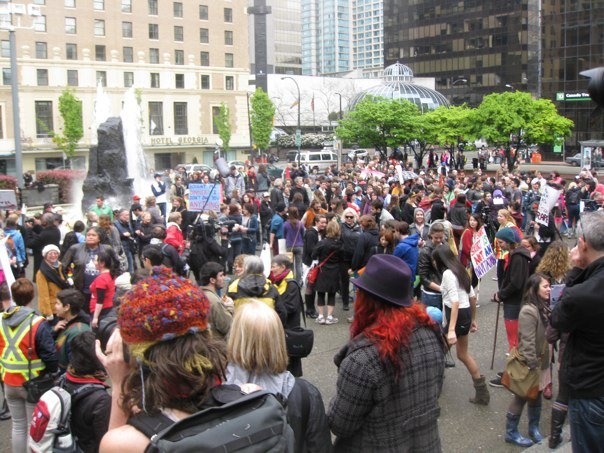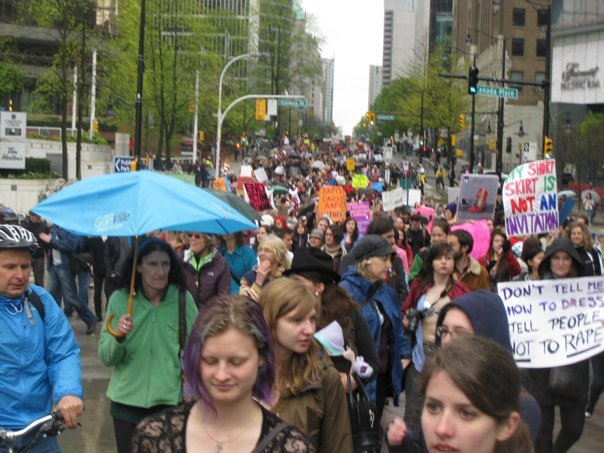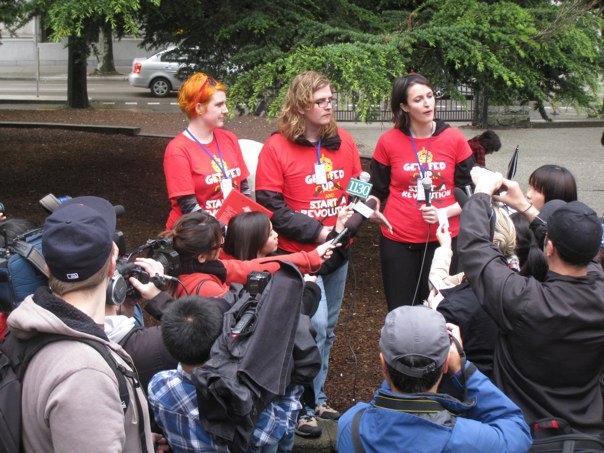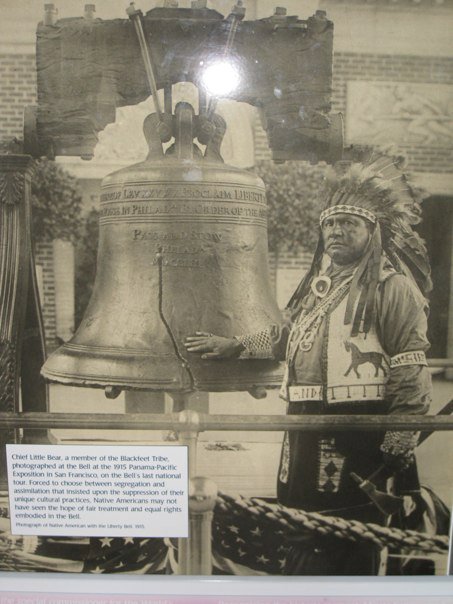Can we, for a moment, assume that nobody is saying (at least publicly) that women should not be allowed to be part of the workforce? At some point in the past, sure, people were saying that a woman has no place outside the home. That argument has morphed somewhat (“a woman’s rightful place ought to be in the home, but they can work if they want/need to”), but I think all sides can agree that nobody is seriously suggesting that it is a bad thing that women have the right to work. Is that fair?
Okay, can we also agree that statistically speaking, fewer women are working than should be? There is a real gender disparity at all levels, where women are underrepresented in all sectors of business. Some of the disparity can be chalked up to women choosing to stay home at a greater frequency than men, but that has no relationship whatsoever to how high they rise in the echelons. So we still have to explain the remaining disparity – why are there fewer women in positions of power? Why don’t we see a more balanced gender ratio?
Maybe… just maybe… it’s shit like this:
A Gatineau, Que., woman says she was wrongfully dismissed after complaining about continual sexual harassment at her federal government job. Zabia Chamberlain worked as a director inside Human Resources and Skills Development Canada until, she says, chronic abuse from her director general forced her to leave her job. She says the department refused to transfer her to an equivalent job, away from the aggressor.
<snip>
In the fall of 2007, Chamberlain was seconded to a director position in the Skills and Employment branch at HRSDC. Chamberlain says her boss regularly intruded into her personal space, with inappropriate touching, pushing himself against her and rubbing her shoulders… Through tears, with shaking hands, Chamberlain explains the harassment didn’t end there. She says he would sometimes fly into a rage and storm into her office. “It was so volatile. He came into my office and slammed the door so loud, it’s the loudest sound I’ve ever heard. He swore. Don’t you ever F—ing do that again.”
She says she asked her boss not to raise his voice or touch her. Then Chamberlain started applying for other jobs inside the public service. She says she had a lot of responsibilities so she was working long hours. She started losing weight and having nightmares. Several of Chamberlain’s co-workers say they witnessed harassment. Some felt bullied themselves by the same manager. Several have written sworn affidavits, documenting what they saw, heard and experienced.
Anyone can have a shitty boss (except me, my boss is awesome). Anyone can face abuse and harassment at the hands of a superior – this is a sad fact of life. People, women more than men, can face sexual harassment in the workplace. People aren’t perfect, and the people in charge tend to be even less so. The world is a shitty place, and shitty things happen.
That isn’t what this story is about.
Given that human beings can to some extent recognize things as being just or unjust, we can attempt to mitigate injustices. The way that Ms. Chamberlain was treated is quite clearly unjust. Regardless of her job performance (which, as far as I can tell, was not in question) her supervisor had no business abusing her the way he did. His conduct was both unprofessional and incredibly harmful to his employees and the work environment generally. But again, some people have shitty bosses. The real problem here is that absolutely nothing was done to correct this circumstance. Complaints were filed about the abuse, and were then promptly ignored. People higher up the ladder insulated the supervisor from criticism, implicitly threatening those who came forward to complain.
If any of this sounds familiar, it absolutely should. This is the same river of bullshit that Stacey Walker in Toronto had to wade through last year. Considering the ‘chilling’ effect that these kinds of situations have – where people are afraid to come forward for fear of professional reprisal – it’s probably a river of bullshit that many women have lots of experience with. It then becomes no mystery why there aren’t more women in the workplace. While this probably doesn’t represent the sum total of obstacles to gender parity, this is certainly an example of a hurdle that women face at a much higher rate than men do. When looked at in context of other barriers (gender attitudes about ability, “masculine” traits being valued over “feminine” ones, in-group biases from male superiors), the picture becomes more and more clear. The system is structured in such a way as to make it tougher for women to compete.
Once again assuming that we actually want more women in positions of authority, what can we do to balance the scales? Is it enough to simply rap our sceptre on our soapbox and say “I declare women to be equal!” The problems are multifaceted and require a concerted level of effort and vigilance. It’s not enough, at this point, to simply say “we will enforce our harassment policies” and expect that to fix the problem. In a perfect world, maybe, that would be enough; of course in a perfect world people wouldn’t get sexually harassed. Complaints about harassment need to be handled particularly assertively (I hesitate to use the word ‘zealously’) – while carefully avoiding arriving at a conclusion in advance of evidence, a woman who has the gumption to come forward and plead her case has to be taken seriously.
Then again, maybe we really don’t want women in positions of power. If that’s the case, we should just keep on keepin’ on.
Like this article? Follow me on Twitter!








